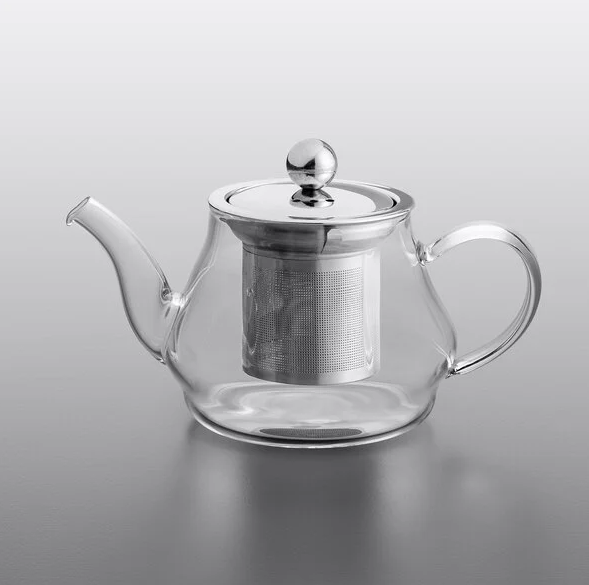How to Make Rosehip Tea
Rose water, rose petals tea, rose perfumes and beautiful rose bouquets are not the only divine smelling and beautiful things coming from a rose bush. What is hiding behind the rose flowers is maybe even more interesting–a fruit called rosehip. Rosehips can be used for making rosehip oil, delicious jams, and the best of all – a rosehip tea.
What is rosehip tea?
With a sweet and tarty flavor, rosehip tea is somewhere between fruit and herbal tea. Although rosehips look like fruits, they are actually false fruits of a rose plants. Rosehip tea is one of the oldest natural remedies in many countries across the world. Out of around 100 different plants in the Rosa genus[1], the most commonly used plant for harvesting edible rosehips is a wild Dog Rose or Rosa canina[2]. Although the regular roses produce hips too, the wild rose is commonly used for making tea. Rosehips from other rose plants are edible too, such Rosa rugosa, Rosa rubiginosa or Rosa arvensis, and are also harvested for comsumption. Today, this tea is available in almost any grocery store, in loose form or in tea bags.Harvesting rosehips
If you are lucky enough to have a rose bush nearby, you can safely pick the fruits and dry them for making your own tea. Once you pick the hips, remove the seeds before using them as food or for making tea[3]. For tea, pick the rosehips that are still plump and firm, cut them in half and remove the hairy seeds. Although hip seeds may provide health benefits[4], the little hairs are infamous for irritating human intestines, [5] and can actually be used for producing the itching powder[6]. Interestingly, not everyone is removing the seeds before drying them, and although they should be safe in limited quantities, it may be better to avoid the risk. Once you removed the seeds, let hips dry. You can crush them too, or grind into a finer powder. Pick the wild fruits free of chemicals, and possibly away from congested roads. Wash fresh rose hips before drying to remove any dirt.Benefits or rosehip tea
Rosehips are rich in Vitamin C, tanning, pectin and thiamin[7]. Tea has been used as a traditional medicine for hundreds of years. It has anti oxidative, antiinflammatory,[8] antimicrobial, anti-diabetic and anticancer effects[9]. Rosehips are a great source of Vitamin C, and “phenolic compounds, carotenoids, tocopherol, bioflavonoids, tannins, volatile oils and pectins.[10]“ The amount of vitamins and other compounds will ultimately depend on the cultivar, terroir and harvesting time, same as with real tea[11]. Interestingly, rosehips may have a higher anti oxidative activity than most of the popular berries–blueberries, chokeberry, blackcurrant, rowan berry and hawthorn[12]. Rosehips may be beneficial in treating some cancers, such as colon or lung cancer, but should be avoided in „oestrogen-dependent tumours“ as they may cause an opposite effect[13]. Research showed that rosehip powder may help reduce the pain in patients with osteoarthritis[14] and rheumatoid artritis[15] and may be beneficial for weight loss too.[16] While most of these studies are related to rosehips from Rosa canina, other types have many benefits too. Research showed that for treating Alzheimer’s diseases, rosehips from Rosa damascena may be the most beneficial ones[17]. Rosehip oil is one of the most precious oils in the beauty industry. Studies showed that it may be very beneficial as a skin-lightening product, while the powder may help with other aging related problems[18].Easy Rosehip Tea Recipe
You can use both fresh or dried rose hips for making a rose hip tea tea. Use about 1-2 teaspoons of dried rosehips per one cup of water, depending if you are using crushed or whole fruits. You can either steep it or boil it. In a small saucepan bring water to boil and add dried rosehips to a boiling water. Let it boil over low fire for about 10 to 15 minutes. Alternatively, bring fresh water to a boil and let the rose hips steep for 10-15 minutes in a covered teapot or a mug. Strain and serve. If you feel creative, blend rose hip with other fruits or flowers. For example, rose hips and green tea or rose hips and rooibos tea make a wonderful cold brew or iced tea.Dislaimer: This article is for informational purposes only. It’s not intended to replace medical advice, diagnosis or treatment. Every person is different and may react to different herbs and teas differently. Never use teas or herbs to treat serious medical conditions on your own. Always seek professional medical advice before choosing home remedies.
References:
[1] https://www.ncbi.nlm.nih.gov/pmc/articles/PMC5485961/ [2] https://www.versusarthritis.org/about-arthritis/complementary-and-alternative-treatments/types-of-complementary-treatments/rosehip/ [3] https://www.botanical-online.com/en/medicinal-plants/rose-hip-toxicity [4] https://www.rosehipvital.com.au/wp-content/uploads/15-3-April-2008-Phytotherapy-Research-A-Systematic-Review-On-The-Rosa-Canina-Effect-And-Efficacy-Profile.pdf [5] http://wildfoodsandmedicines.com/rosehips/ [6] https://en.wikipedia.org/wiki/Itching_powder [7] https://www.botanical-online.com/en/medicinal-plants/rose-hip-toxicity [8] https://www.rosehipvital.com.au/wp-content/uploads/15-3-April-2008-Phytotherapy-Research-A-Systematic-Review-On-The-Rosa-Canina-Effect-And-Efficacy-Profile.pdf [9] https://www.ncbi.nlm.nih.gov/pmc/articles/PMC5485961/ [10] https://www.ncbi.nlm.nih.gov/pmc/articles/PMC5485961/ [11] https://www.ncbi.nlm.nih.gov/pmc/articles/PMC5485961/ [12] https://www.ncbi.nlm.nih.gov/pmc/articles/PMC5485961/ [13] https://www.ncbi.nlm.nih.gov/pmc/articles/PMC5485961/ [14] https://www.nhs.uk/news/food-and-diet/rosehip-for-osteoarthritis-pain/ [15] https://www.versusarthritis.org/about-arthritis/complementary-and-alternative-treatments/types-of-complementary-treatments/rosehip/ [16] http://cms.herbalgram.org/heg/volume15/02February/FAM_Rosehip.html [17] https://www.ncbi.nlm.nih.gov/pmc/articles/PMC5485961/ [18] https://www.ncbi.nlm.nih.gov/pmc/articles/PMC4655903/
More from:
SLL



Leave a comment